Why a Fashion Designer Left Her High-Flying Job to Rear Goats in a Remote Village
Shweta has also started training sessions at her farm for anyone who wishes to start a goat farm.
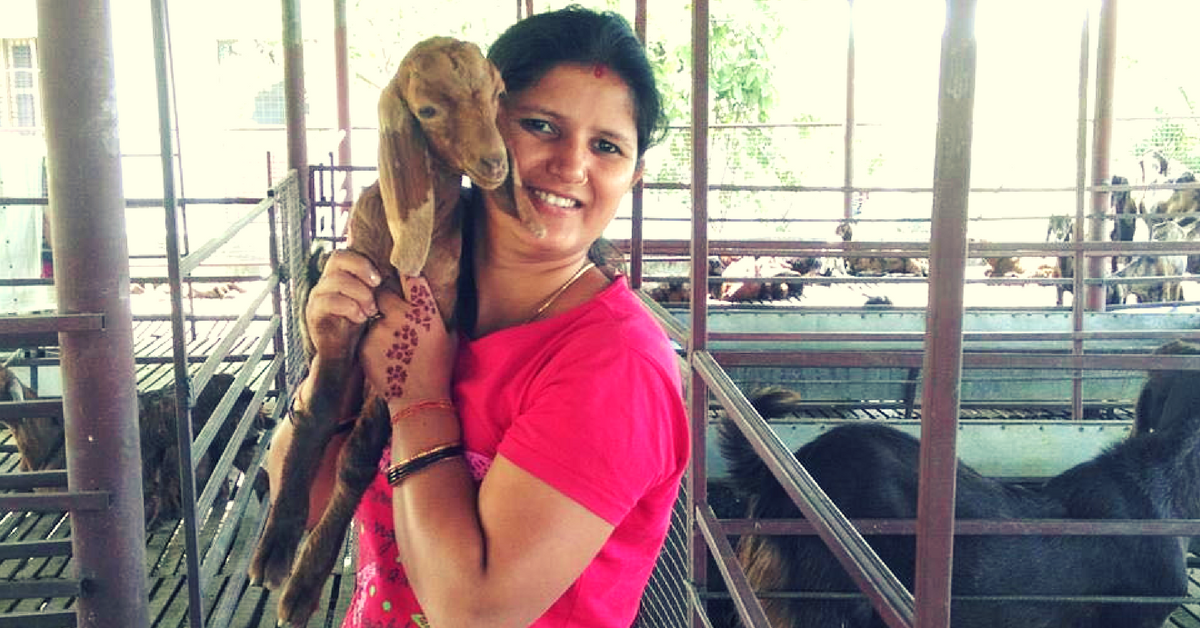
A promising student from NIIFT, Mohali, Shweta Tomar had her boutique until 2015 and could have been a successful fashion designer today. But she chose a different path and started goat rearing in a remote village instead. Here is her journey.
It all began when Shweta shifted from Dehradun to Bengaluru after getting married in 2015. Until then, she was a successful fashion designer. After moving to Bengaluru, she would often think of restarting her business.
“I was sure that I couldn’t just sit at home. I had to do something,” says Shweta while speaking to The Better India.
However, her interests took a U-turn when she visited a nearby farm over a weekend with her husband.
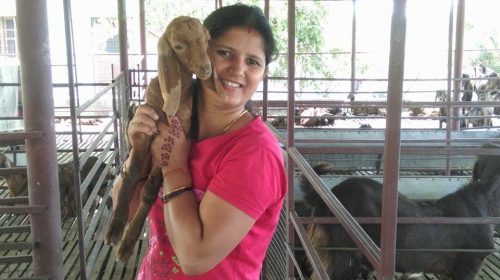
“It was a goat farm, and I loved spending time with them. I felt that I would enjoy taking care of them if I too started a goat farm,” she says.
After this visit, Shweta continued to visit the farm every day. She took formal training in goat farming and also gained hands-on experience for over a year in this farm. Once she was confident enough to start her own goat farm, she discussed the idea with her husband, Robin Smith, and had his full support for it.
However, Shweta, who was born and brought up in a small village, did not want to start her farm in a city. Instead, she decided to set up her farm in a village – hoping that she could prove that youths need not leave villages to find employment.
With that in mind, she left her comfortable life in Bengaluru and shifted to her ancestral land in a small village called Listrapur, in Ranipokhri area of Dehradun.
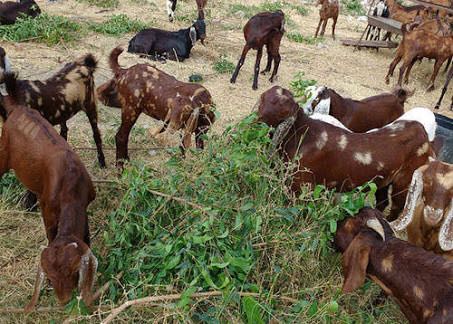
“Initially everyone was shocked with my decision. But looking at my determination, they agreed to let me follow my heart,” she says.
The initial challenges were many. The village had no goat farms so far, and so there was little optimism or enthusiasm for Shweta’s venture. The plot was bordered by jungle, and elephants and deer would pass-by often, which made it difficult to maintain a farm. This was why the area had remained barren for all these years.
However, nothing could stop Shweta. She took a loan and began her farm with some 250 goats.
“Looking at our urban attire, even bank authorities were shocked when we applied for a loan for animal husbandry. I had taken almost ₹ 30 lakh as a loan. It was a huge amount. I couldn’t have afforded a loss. I promised myself that I am going to make it successful – come what may,” says Shweta.
In September 2016, Shweta and Robin laid the foundation of ‘Prem Agro Farm’ in Listrapur village.
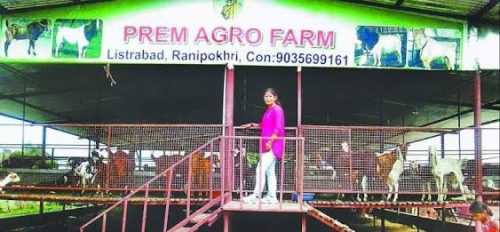
The farm is spread over 3000 sq. Ft with all modern amenities like 24×7 online surveillance through CCTV and an elevated platform, so that dung and urine can pass below and the platform remains dry and clean.
“Though this model required double the amount of building a traditional goat farm needs, we still preferred doing this so that the goats can stay in a clean environment. With this model, we have to clean the place just once a day,” informs Robin.
Shweta’s farm has only desi breeds of goats. The goats are of high quality, which breeds only two kids per year. The farm does not indulge in the artificial breeding method.
The animals are kept with utmost care. A water tank and a fodder tank are always filled, and the goats can eat or drink whenever they want.
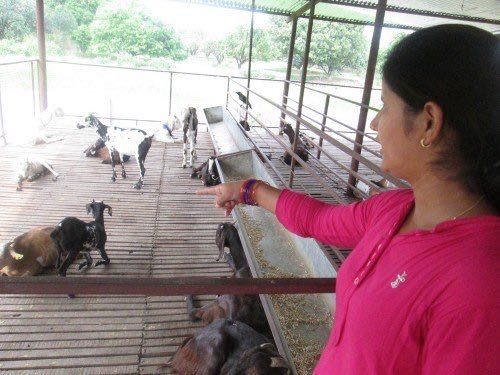
Pregnant goats are kept separately from the herd and fed nutritious food. The newborns are also kept warm and clean. The goats have a very small mortality rate due to these favourable conditions.
Shweta has also started training sessions at her farm for anyone who wishes to start a goat farm. She believes that such businesses will encourage youth to remain in their villages and develop them, rather than migrating to crowded cities for work.
For anyone who wants to start a goat farm, Shweta advice is, to begin with just 10 – 20 goats – which would cost them around ₹ 8-10 lakh. Each goat requires ten sqft. to stay comfortably, hence it is advisable to use one’s own land rather than taking land on lease.
The most important aspect of starting an animal farm, according to Shweta, is that you must have interest and love for animals.
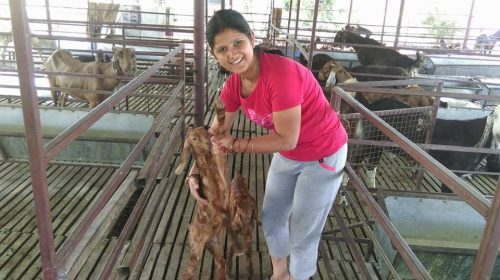
“These animals can’t speak – just like a baby. You have to become their mother and understand their gestures, their signals and their wordless language. This is possible only if you love them like a mother loves her baby. My most memorable moment was when the first two kids were born on our farm. It was December, and I would make bedding for them in my own room. I would also keep a hydrogen light near them to keep them warm. It was as if I had become a mother,” she says.
Shweta sells these goats to small farmers in her village. She doesn’t like to sell them to slaughter houses. She has also reared hens and plans to expand her business in the coming years. Right now her yearly turnover is ₹ 3- 4 lakh and she is happy with the same.
Shweta has also started farming in half a bigha of land. She uses fertiliser made of only goat dung. The vegetables grown by her are more than enough for their consumption. Hence, she also earns extra from selling surplus veggies.
“No work is big or small. Nothing can be achieved easily. If you work hard and dedicate yourself to a cause, you are definitely going to succeed,” she concludes.
You can contact Shweta on 9035699161 or 9720250290.
Like this story? Or have something to share? Write to us: [email protected], or connect with us on Facebook and Twitter.
NEW: Click here to get positive news on WhatsApp!
If you found our stories insightful, informative, or even just enjoyable, we invite you to consider making a voluntary payment to support the work we do at The Better India. Your contribution helps us continue producing quality content that educates, inspires, and drives positive change.
Choose one of the payment options below for your contribution-
By paying for the stories you value, you directly contribute to sustaining our efforts focused on making a difference in the world. Together, let’s ensure that impactful stories continue to be told and shared, enriching lives and communities alike.
Thank you for your support. Here are some frequently asked questions you might find helpful to know why you are contributing?


This story made me
-
97
-
121
-
89
-
167













